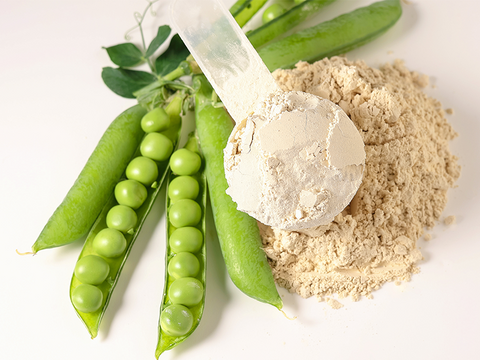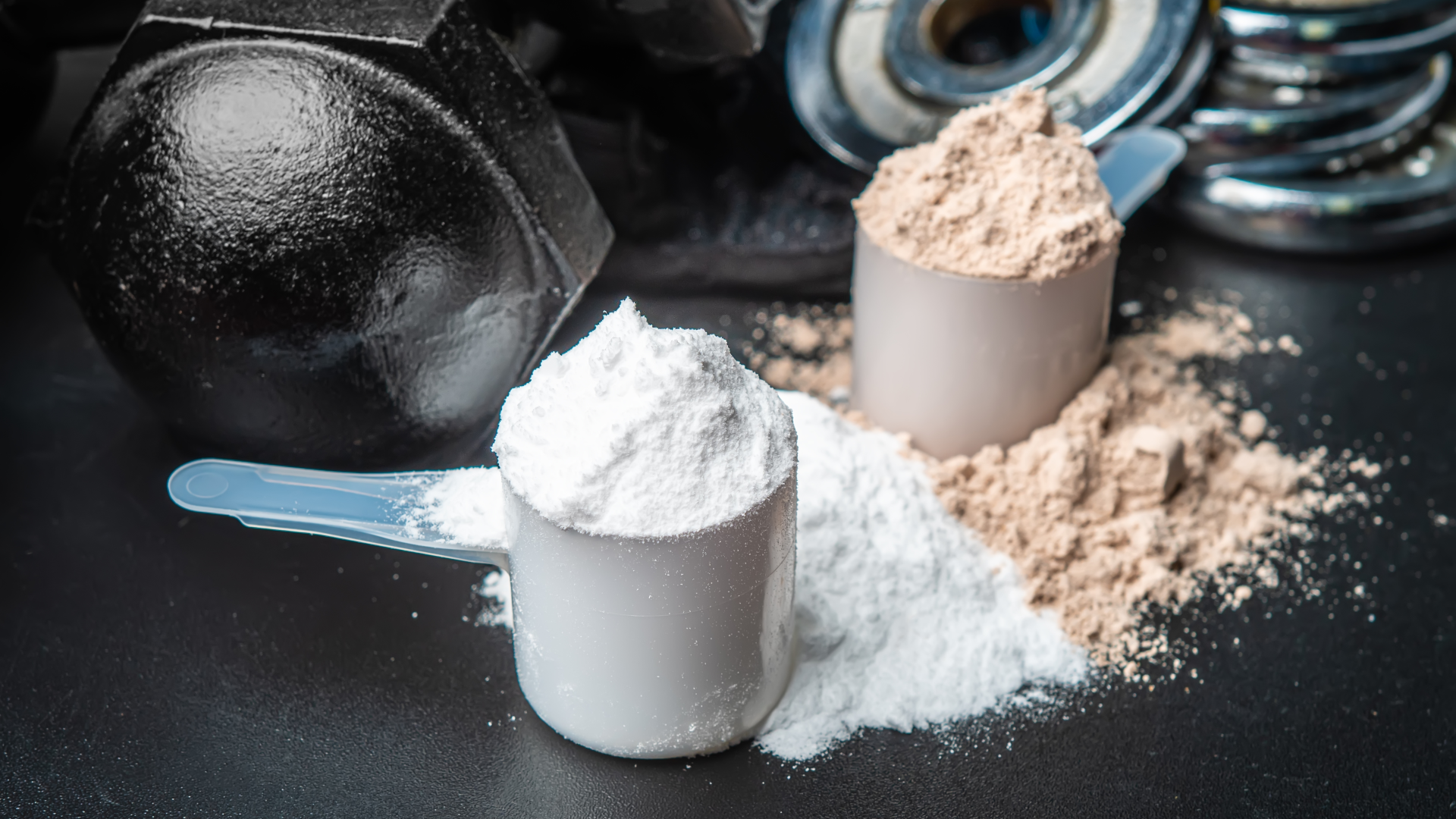Grab your cheat sheet |
Have you been hitting the squat rack consistently for months but finding your progress has plateaued?
It’s probably down to your diet, specifically your protein intake.
The easiest way to increase your protein intake (and fire up muscle growth) is by consuming whey protein powder.
So let’s learn more about whey protein powder's many benefits.
What is whey protein powder?
When manufacturing whey protein, there are three forms that can be produced:
- whey protein concentrate
- whey protein hydrolysed
- whey protein isolate
Whey protein concentrate has undergone less processing, meaning there is a slightly higher concentration of lactose and a somewhat lower concentration of protein (although it’s still upwards of 80% protein).
As the protein is further processed, it moves through from hydrolysed and whey protein isolate. This removes lactose, as well as some great nutrients, but it increases the protein concentration.
Whey protein isolate has around 95% protein concentration. Whey protein hydrolysed is somewhere in the middle.
Essential Amino Acids
Amino acids are the building blocks of protein, and our body uses around twenty different types. Most of these we can synthesise ourselves, but there are nine amino acids that we have to get from dietary protein. You will find these nine essential amino acids in a whey protein shake.
We need at least some protein in our diet to ensure our body is able to perform basic cellular functions. A diet high in protein means that our body can undertake these processes at optimum levels; this includes muscle hypertrophy.
The benefits of whey protein
So now we know more about what whey protein actually is, let’s look at the benefits of taking a whey protein supplement.
Builds muscle..
You can do hundreds of squats and deadlifts every week, but you won’t see significant results unless you get enough protein in your diet. Health and fitness gurus agree that a healthy, high-protein diet contributes 80% to our progress, with exercise contributing just 20%.
The amino acids found in protein are required to initiate muscle protein synthesis, and the more resistance training you do, the more protein you need. A high-quality whey protein shake contains over 20 grams of protein for every 100 calories. This means it’s a great way to hit your protein goals without overstepping your calorie restrictions.
Promotes recovery…
Your rest time is as important as your workout time. Your body has to be given adequate time to heal and repair after a tough workout, but this downtime can be frustrating. If only there was a way to speed things up…
Yep, you guessed it. A scoop of whey protein taken around 30 minutes after your workout speeds up recovery and protects you against muscle loss. Resistance training causes tiny muscle tears, and the amino acids in protein support our body to heal these tears.
Reduces inflammation…
Linked to the above point, weight training causes inflammation within our body. While this is necessary for progress, the inflammation has to be brought back down to prevent it from becoming chronic.

Studies have found that taking whey protein supplements significantly reduced a compound called “C-reactive protein” (CRP). CRP is a protein made by our liver that can be harmful in high doses.
Weight Loss…
We have probably all tried a diet plan or two, and while different diets work well for different people, there is one constant that aids success - protein. Whey protein supplements make us feel fuller and decrease cravings for unhealthy foods. So if you want to lose body fat while increasing your muscle mass, whey protein powder will help with both.
Other health benefits of whey protein
Whey protein isn’t just for improving our overall strength and lean body mass; it has wide-ranging health benefits. A high-protein diet can;
- Lower blood pressure
- Support good digestive health
- Strengthen our bones
- Help maintain hormonal balance
- Improve our immune system
- Stabilise blood sugar levels
- Protect against heart disease
- Improve our skin, hair and nail health
What about plant proteins?
There are many plant-protein-based alternatives that you can use instead of whey. Still, whey protein powder is superior to these, thanks to its higher essential amino acid concentration content. In particular, whey protein powder has high levels of leucine, isoleucine and valine - these are branched-chain amino acids (BCCAs) which are important for muscle protein synthesis.

It also has a higher protein digestibility and bioavailability, i.e., our body finds it easier to actually utilise proteins from animal sources.
So whey protein powder is the superior choice unless you are vegan or can’t digest whey protein due to lactose intolerance.
Choosing the best whey protein for you…
We mentioned three types of whey protein earlier: whey protein concentrate, whey protein hydrolysed whey protein isolate. There are lots of great nutrients in whey protein concentrate which support our muscle recovery, but whey protein isolate has a high protein concentration and releases that protein into our muscles very quickly.
A product with a mix of whey proteins is your best solution - it gives you the benefits of all three and provides a multi-stage protein release, meaning your muscles receive a gradual injection of energy.
Check out Crazy Nutrition’s TRI-PROTEIN formula, developed to provide optimum results.



